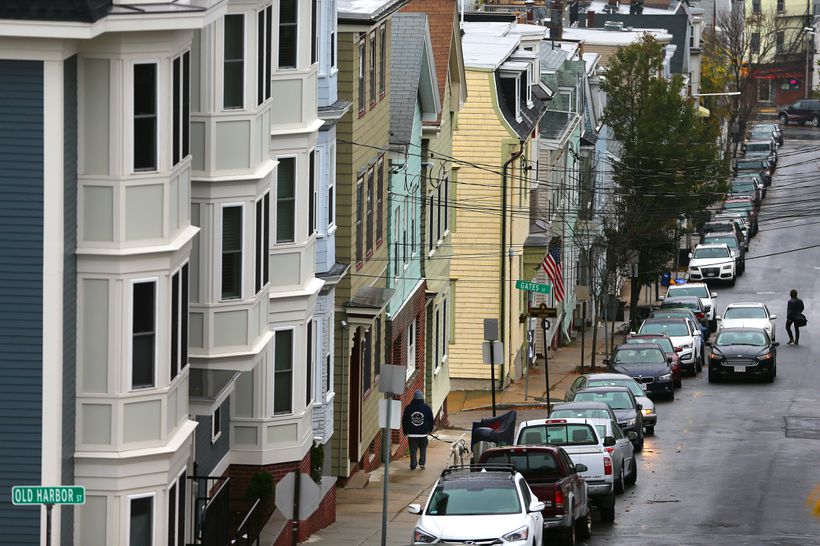DAVID GREENE, HOST: In many American cities, the cheapest rental housing is single room occupancy, or SRO units or rooming houses. These are tiny rooms with no kitchens and shared bathrooms out in the hallway. As investors buy up SRO properties in urban neighborhoods, several cities have seen low-income tenants pushed out. Chris Burrell from WGBH’s New England Center for Investigative Reporting found such renters are struggling to hold on.
RICHARD: Don’t be shy (ph). Go, go, go, go, go, go, go, go, go, go. Good girl.
(SOUNDBITE OF CAT MEOWING)
CHRIS BURRELL, BYLINE: That’s Richard, a 62-year-old tenant in an SRO north of Boston. As he opens the door to his room, he makes sure his cat doesn’t dash into the hallway. NPR’s not using his full name because he is fearful of reprisals from his landlord for talking to the media.
(SOUNDBITE OF CAT MEOWING)
RICHARD: Her prior owner was a heroin addict who had OD’d. And if I have to move out, who’s going to take care of her?
BURRELL: He’s worried because the 72-unit SRO, where he lives in a windowless room, was sold last year for $2.2 million. Since then, the owner has sent eviction notices to 20 tenants; in April came notice of rent hikes. For tenants like Richard, it’s a 27% increase, from $550 to $700 a month.
Nationally, housing advocates say SROs are vital unsubsidized shelter for the poor, low-wage workers, the elderly and people with mental illness or drug addiction. SROs don’t have a great reputation. Considered substandard housing, cities in the last 50 years eliminated hundreds of thousands of rooms in the name of urban renewal.
NAN ROMAN: There’s no question that the loss of a lot of these units is a major contributor to homelessness in places where they existed.
BURRELL: That’s Nan Roman, the head of the National Alliance to End Homelessness. She says SROs, once seen as blight, are now viewed as one solution to homelessness. Several cities – Chicago, New York, San Francisco and Portland, Ore. – are trying to preserve SROs before owners convert them to higher-end housing.
Back in Massachusetts, Richard has lived in this tiny SRO room for three years, surviving on a $700-a-month disability check. His hands tremble as he shows me the ceiling fan dangling from thin wires. He and three other tenants share a bathroom with cracked floor tiles and decayed caulking around the tub. As bad as it is here, Richard wants to stay put.
RICHARD: One of the big problems for most people in the building is, where are we going to go? We can’t afford the rent anymore, and you’re talking about elderly, disabled people.
BURRELL: He’s not alone. In San Diego, city officials last spring were helping nearly 200 people relocate after a large SRO closed. In Boston, housing advocates see a similar pattern. Eloise Lawrence is an attorney at Harvard Law School’s legal clinic, defending SRO tenants against eviction.
ELOISE LAWRENCE: People are being thrown out. That’s happening across the city because these properties now are so valued. What was considered sort of housing at the last resort is now seen as desirable and profitable.
BURRELL: But developers say running rooming houses is hard, and when the economy is booming like it is now, there may be easier options, like converting to condos. Alan Hope ran two rooming houses north of Boston.
ALAN HOPE: It’s very difficult, I think, if you’re not a professional, in maintaining a rooming house to the standard that’s required. Real estate, in general, is becoming more higher-priced, valuable. So investors are trying to get the most they can out of it. Maybe having other form of more stable type of tenants, tenants that are probably living – earning a living, and they’re not depending on subsidies.
BURRELL: Housing experts say demand for such SRO-type housing is increasing as the number of single households in America who are renters has grown to 16 million in the last decade, and many of them are facing rent levels that eat up at least a third or half their income. Building new SRO housing is one response. Places like New York and Portland, Maine, are looking at proposals to do just that.
For NPR News, I’m Chris Burrell.
Filed in: In the News
Tags: Eloise Lawrence, Harvard Legal Aid Bureau, Project No One Leaves
Contact Office of Clinical and Pro Bono Programs
Website:
hls.harvard.edu/clinics
Email:
clinical@law.harvard.edu
